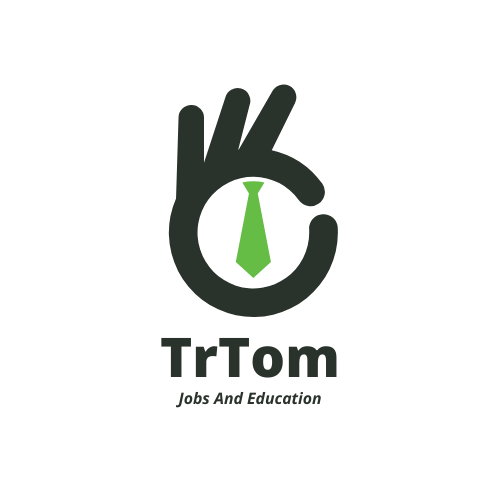Understanding the Job Market in Germany
Overview of the Job Market in Germany
Germany’s job market is robust, offering ample opportunities for skilled professionals across various sectors. Notably, there is a high demand for engineers, IT specialists, healthcare professionals, and mechatronic technicians. To navigate this market effectively, individuals should complete a Quick Check on the Make it in Germany website to assess their chances of employment.
Opportunities for International Students
International students can capitalize on several opportunities in Germany. To maximize these opportunities, consider these actionable steps:
- Research job vacancies targeting international talent.
- Seek internships that pave the way for full-time positions.
- Engage with local businesses to build connections.
Building a Strong Resume and Cover Letter
Tailoring Your Resume to German Standards
To create a compelling resume that meets German expectations, follow these actionable steps:
- Include personal details: Name, address, phone number, and email.
- Adopt a clear structure: Utilize clear headings (e.g., EDUCATION, WORK EXPERIENCE).
- Use a professional layout: Keep fonts standard like Arial or Times New Roman, size 11 or 12.
- List experiences chronologically: Begin with the most recent and ensure relevance to the position.
Writing an Effective Cover Letter in German
To draft an impactful cover letter, adhere to these guidelines:
- Research the company: Tailor your message to show alignment with their values.
- Highlight specific skills: Demonstrate how your experiences meet their needs.
- Keep it concise: Limit your letter to one page, ensuring clarity and professionalism.
- Use formal language: Avoid colloquialisms and maintain a professional tone throughout.
Networking and Job Search Strategies
Leveraging Online Platforms and Job Portals
To enhance job search efforts in Germany, candidates should utilize various online resources effectively:
- Sign up on job portals: Register on sites like LinkedIn, StepStone, and Indeed.
- Create a professional profile: Ensure your online presence highlights your skills and experiences.
- Set job alerts: Enable alerts to receive notifications for relevant job openings.
- Engage with content: Actively participate in discussions and share insights in relevant forums.
Networking Tips for International Students
To optimize networking opportunities, international students should follow these practical steps:
- Attend industry events: Participate in career fairs and workshops to meet professionals.
- Use LinkedIn: Connect with alumni and professionals in your field.
- Request informational interviews: Reach out for short discussions about their careers.
- Follow up: Send thank-you notes after meetings to maintain relationships.
Navigating Work Permits and Visa Regulations
Understanding Work Permit Requirements
To successfully obtain a work permit in Germany, applicants should follow these steps:
- Check eligibility: Ensure you meet qualifications for the specific work visa.
- Prepare necessary documentation: Gather required documents, including your job offer and proof of qualifications.
- Make an embassy appointment: Schedule your application appointment at the nearest German embassy or consulate.
- Submit your application: Complete the application and pay the associated fees.
Visa Regulations for International Students Seeking Employment
International students should take note of the following regulations:
- Understand work limits: Non-EU students can work up to 120 full days or 240 half days per year.
- Seek permission for self-employment: Obtain prior consent for freelance work from the Foreigners’ Authority.
- Apply for a residence permit post-study: Transition your student visa to a work permit after completing your studies.
Acing the Job Interview Process
Tips for Interviewing in Germany
To impress during job interviews in Germany, candidates should follow these key tips:
- Research the company: Understand their values, products, and culture.
- Prepare thoughtful questions: Inquire about team dynamics and company goals.
- Practice common interview questions: Prepare concise, relevant responses.
- Dress appropriately: Adapt your attire based on industry standards.
Cultural Etiquette and Professionalism
To align with German professional practices, consider these guidelines:
- Arrive on time: Being punctual is highly valued in German culture.
- Communicate directly: Be clear and concise in your answers.
- Show respect: Address interviewers formally unless invited to do otherwise.
- Demonstrate a strong work ethic: Emphasize reliability and responsibility in your responses.
Conclusion
Summary of Key Steps for Finding a Job in Germany as an International Student
To successfully find a job in Germany, international students should adhere to these critical steps:
- Apply for a Job Seeker Visa: Utilize the six months to explore employment opportunities.
- Obtain qualifications recognition: Ensure your educational credentials are acknowledged in Germany.
- Enhance language skills: Invest time in learning German to improve job prospects.
Final Thoughts and Best Practices
Navigating the German job market requires persistence and strategy. Keep these best practices in mind:
- Network actively: Attend events and join professional associations.
- Tailor applications: Customize your CV and cover letter for each application.
- Leverage online platforms: Use job portals and maintain a strong LinkedIn profile.

